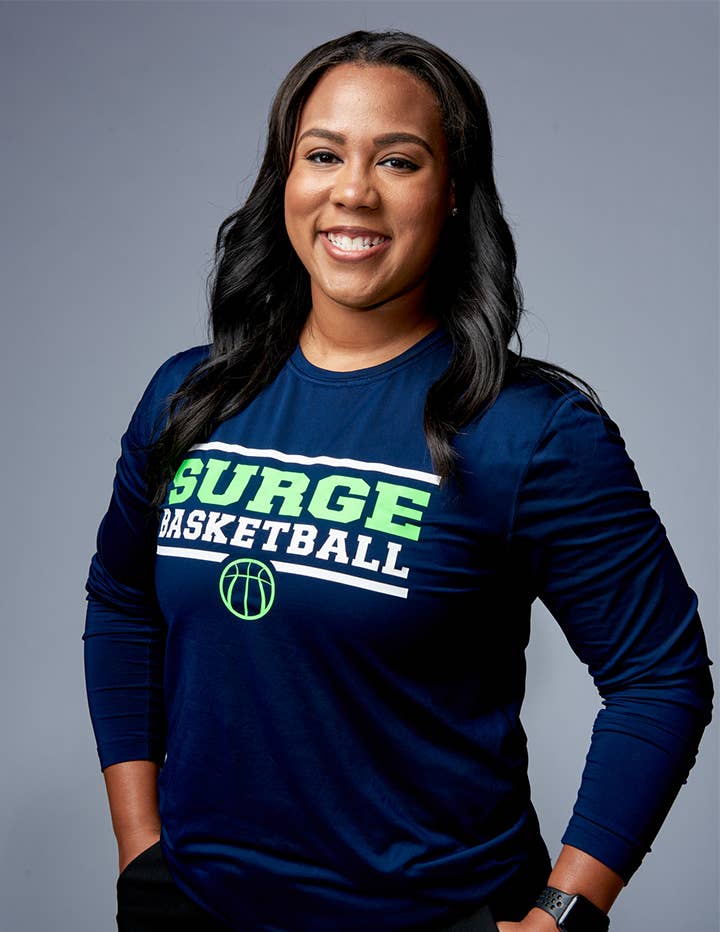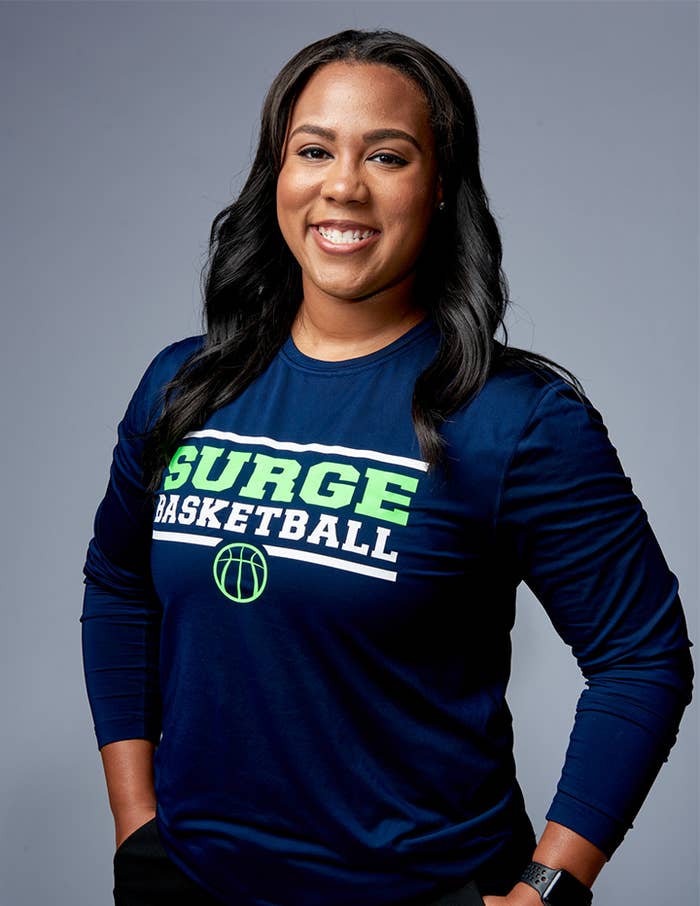
Growing up, Khalia Collier dreamed of becoming a basketball star. At 23, she realized those dreams, but her involvement in the sport took an unexpected form. The young businesswoman purchased the St. Louis Surge, making her the only black woman to own a pro sports team in the city and the youngest sports team owner in the country at any level.
Now 31, the history-making entrepreneur is nearing the end of her 8th season as owner and general manager of the Surge. The team is now in the Global Women’s Basketball Association (GWBA), of which Collier is the commissioner. Collier is an exemplary model of LeBron James’ concept of what it means to be “more than an athlete.”
While winning championships is the primary goal on the court, Collier has made it her mission to empower off of it. Through mentorship and education, she encourages women and girls to pursue positions in the male-dominated world of sports. In the process, she hopes to demonstrate to the world just how financially profitable women’s sports franchises can be.
“Our entire philosophy has been, ‘Don't just play the game. Change it,’ Collier explains. “[We want] to create opportunities for women in sports, primarily professional basketball, that simply haven't existed in a development pipeline elsewhere.”
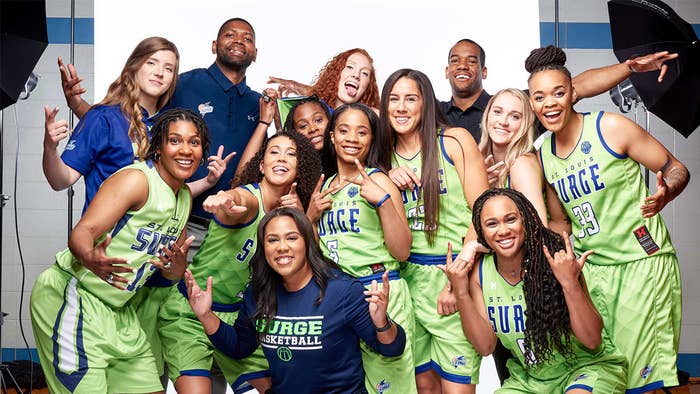
Typically, coaches seek out players with the most talent to join their roster. However, Collier has a slightly different approach.
“Recruiting character first without sacrificing talent has been the core of our program,” she continues. “Our players are all postgraduates, and half of them have Master’s degrees. We provide them with opportunities in the career field, as well as on the court.”
The St. Louis native fell in love with basketball at five years old and credits her father as her first coach. By the end of high school, she earned a scholarship to play college ball. However, Collier got injured during her junior year, forcing her to give up basketball in exchange for golf, a sport she’d played reluctantly at her father’s request when she was a teen. Collier now considers the switch a turning point in her professional trajectory.
“I became a ringer pretty early on,” she recalls. “I was the only female, and I was the youngest, and the only one that looked like me. That started putting me in great networking positions.” The businesswoman took the vital opportunity to build relationships with her fellow golfers when she was just 21 years old.
Collier took a job at a car dealership in school and continued working there after graduating with a degree in communications. But an unexpected circumstance led Collier back to her first true love. When her best friend tried out for the Surge, Collier tagged along to offer support. Her friend made the team, but the Surge were also seeking a manager and felt Collier’s resume was impressive enough that she could handle the task. She got the position, and as a bonus, served as a practice player for the squad, which was desperately in need of bodies.
“I played one game with the Surge and a light bulb went off,” she says. “This was just a golden opportunity to create something [special]. I went to the owner to see what taking over the team would entail. He opted to leave midway through the year. That's when I made this crazy leap of faith in May of 2011 to buy a basketball team.”
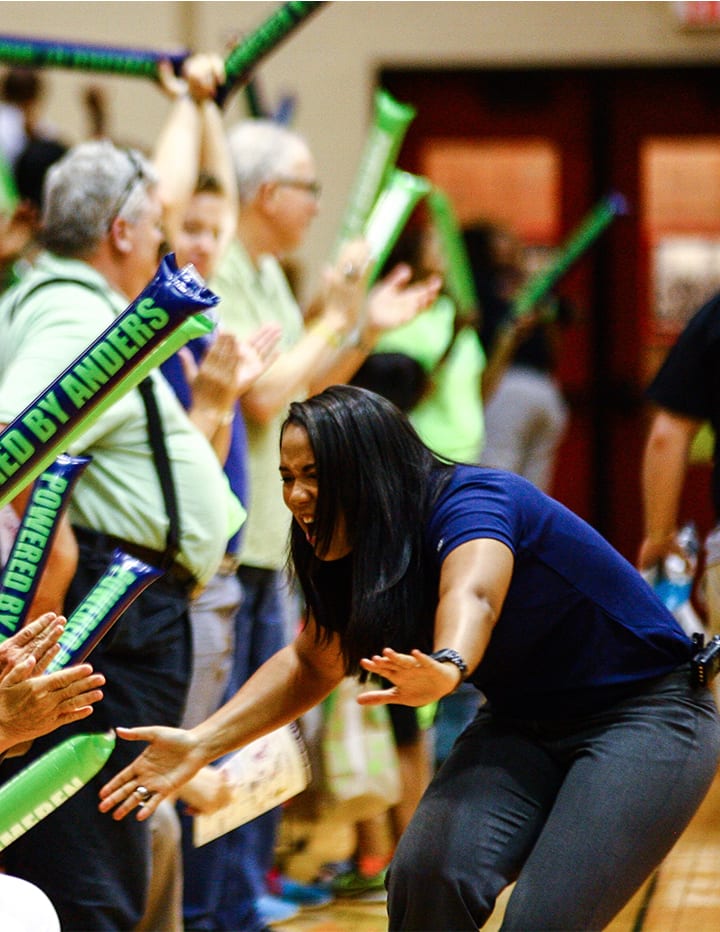
Initially, Collier tapped into her savings to finance everything. She had no student loans, had saved money for years, and kept a low overhead by utilizing her connections who were eager to help. Local buzz began to build and sponsorships soon followed.
“My first sponsor was Range Rover and then Cadillac,” she remembers. “So [their logos] were put on the front door at UMSL [University of Missouri-St. Louis], which was our first venue and stadium, and we felt like big fish.”
More investors took interest as the Surge dominated the WBCBL for seven seasons, winning five regional championships and two national championships. The team remains a force in the GWBA, which champions athletes pursuing professional playing careers beyond collegiate and amateur levels.
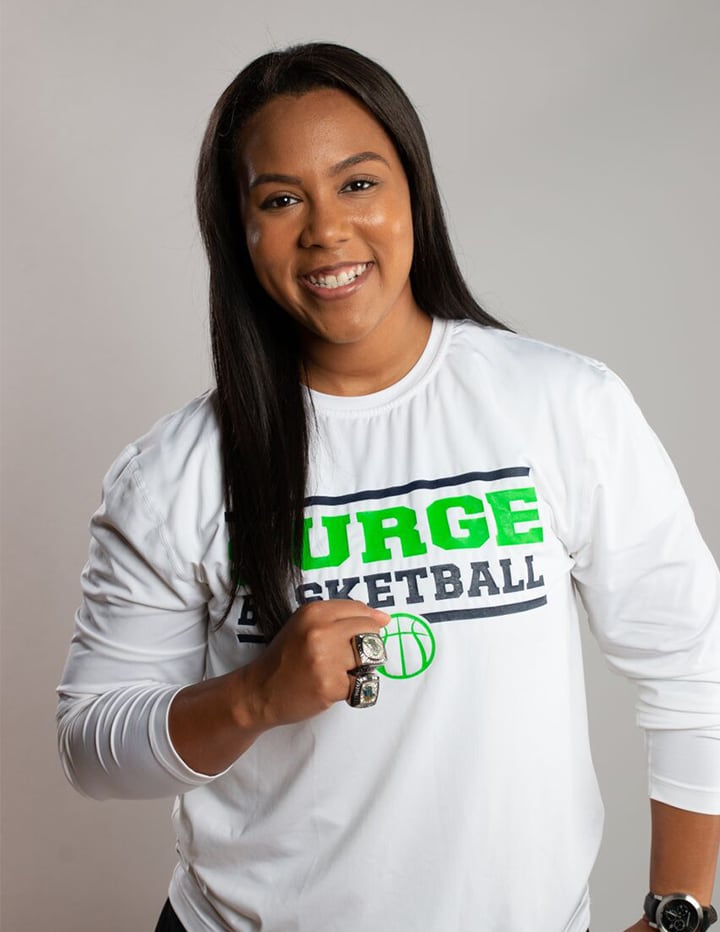
The running joke, according to Collier, was that she didn't ask for anyone's permission to start building. Her parents instilled in her the fearlessness needed to find success in a historically non-female arena. Collier’s story is an inspiring one, but obviously no great come-up is without its obstacles.
“I would come [to meetings] with corporate partners, but I often got, ‘They love what you're doing. They're impressed by you. They want to see [the team] build, but they don't want to give you any type of resources or investment to actually make it happen,’” she says. Collier remembers when a local sports news producer flat out told her the team (and league) weren’t going to work.
“As a woman, you really just have to fight to be three to four to five times better than your peers.”
“At first, I thought it was just ageism. Like I'm young, right? I'm just not getting the time of day. And then I realized it was that people don't value women the same as they do men. It's crazy how time changes your perspective and gives you the ability to see things that you thought may have been non-existent. As a woman, you really just have to fight to be three to four to five times better than your peers.”
Winning is definitely a fundamental silencer of the haters. So too are intellect and economic know-how. That’s why she requires her players to have a bachelor’s degree as a safety net.
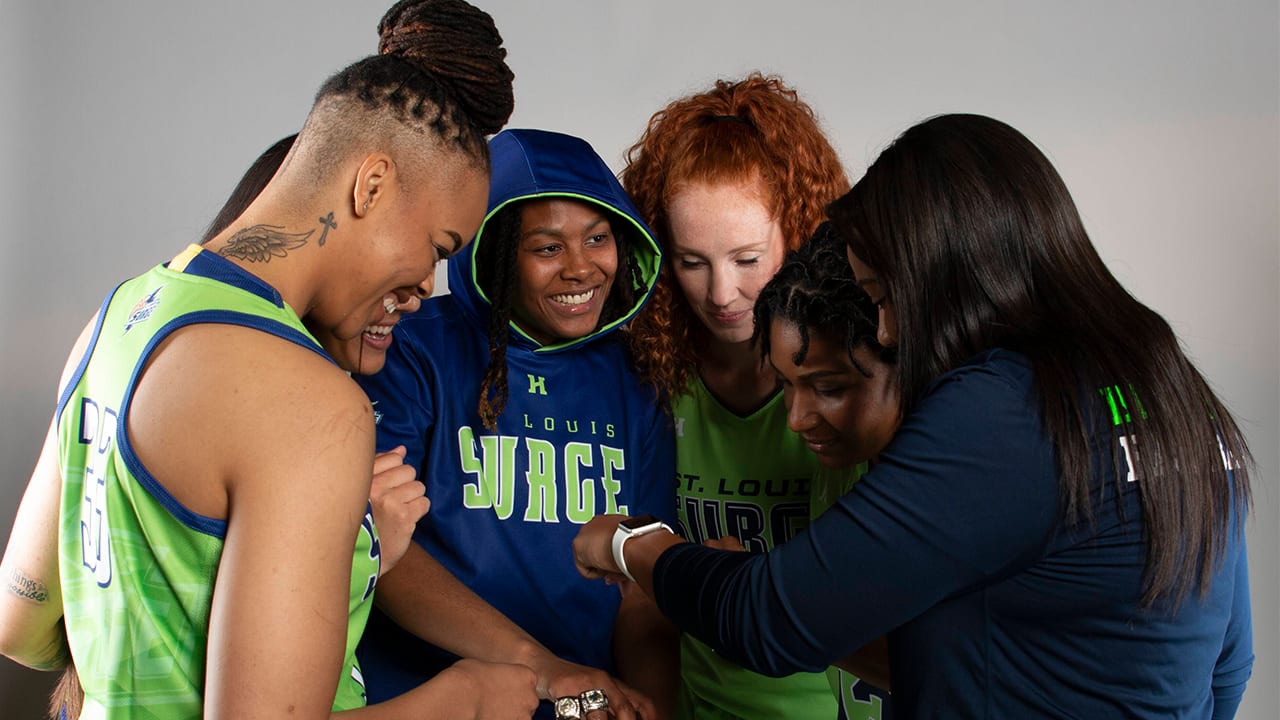
“We're not at a point in time where [female athletes] can play one year and be done and be financially secure,” she says. “The money is just simply not the same [as male players]. So education has always been key in women's athletics, and this gives us the perfect opportunity to be able to highlight players and propel their careers.”
Collier notes that her players learn how to read credit reports and receive advice on home buying, among other things. “It's really a core part of the workshops that we provide under the Surge umbrella. Not only are we going to push you competitively on the court with professional development, but we're going to couple that through personal development, as well.”
Players are also required to volunteer. The bottom line is if a player doesn’t like kids then they won’t be a good fit for the team. The Surge has established a heavy presence in several school districts by teaching lessons that transcend basketball.
"it's just as important for little boys to see what we're doing because it changes their entire mindset at four, five, six years old. They see strong women. They see women in leadership.”
“Surge is my Disney World, with the amount of kids that run up. Everyone always is like, ‘It's so great for little girls to see what you guys are doing.’ It absolutely is, but it's just as important for little boys to see what we're doing because it changes their entire mindset at four, five, six years old. They see strong women. They see women in leadership.”
Collier’s next short term goal for the team is to win another championship. However, long term, bigger picture, she wants to move the culture. So far, things are going according to plan.
“Every day we see history being made. Every day we see a woman who is entering a space that hasn't traditionally been welcoming to her. I feel like it starts with myself with being able to create the same opportunities for players in St. Louis, players across our league, and being a connector.”

